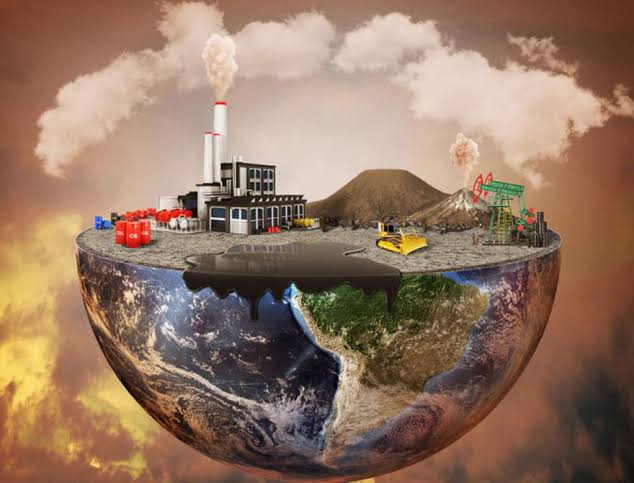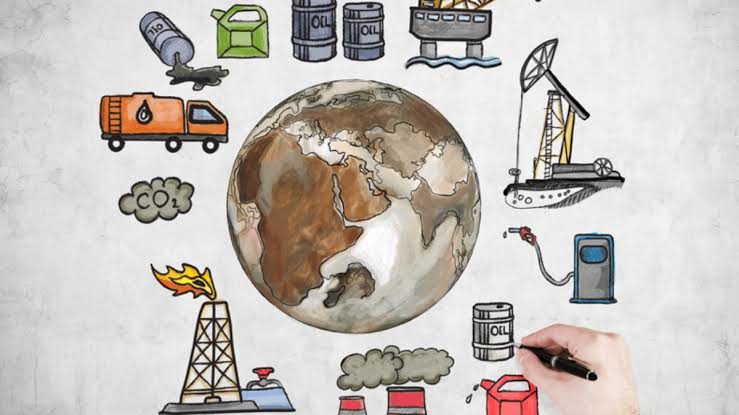Sandeep Dhand Ludhiana
Journalist and Research Analysist
Introduction
Pollution has become one of the most pressing issues of our time. It affects our air, water, and soil, and the consequences are evident in the health of living organisms, including humans. From smog-filled cities to contaminated water bodies, the signs of pollution are everywhere. This article delves into the types, causes, and impacts of pollution while offering potential solutions to mitigate its effects.
Types of Pollution
- Air Pollution Air pollution refers to the presence of harmful substances in the atmosphere. These include gases like carbon monoxide, sulfur dioxide, and nitrogen oxides, as well as particulate matter (PM), which are tiny particles that can enter our lungs. The burning of fossil fuels, industrial emissions, and vehicle exhaust are some of the primary sources of air pollution. In cities, the impact of air pollution is often seen in the form of smog, which is a mix of fog and pollution. Breathing polluted air can lead to respiratory diseases, heart problems, and other serious health issues.
- Water Pollution Water pollution occurs when harmful chemicals, waste, or microorganisms contaminate water bodies like rivers, lakes, oceans, and groundwater. Industrial waste, untreated sewage, and agricultural runoff contribute significantly to water pollution. Plastic waste, one of the biggest threats to marine life, is often found in large quantities in oceans. Contaminated water not only affects aquatic organisms but also poses risks to human health, causing diseases like cholera and dysentery.
- Soil Pollution Soil pollution is caused by the deposition of hazardous chemicals into the earth, often through agricultural activities, industrial waste, or improper disposal of household waste. Pesticides, fertilizers, and heavy metals are common pollutants that degrade soil quality. This, in turn, affects plant life and the food we consume. Contaminated soil can lead to reduced agricultural productivity and can harm organisms living in the soil, disrupting ecosystems.
- Noise Pollution Noise pollution refers to harmful or excessive levels of sound in the environment. It is usually caused by heavy traffic, construction activities, industrial operations, and even loudspeakers in urban areas. Constant exposure to high levels of noise can lead to stress, hearing loss, sleep disturbances, and other health problems.
- Light Pollution Light pollution is the excessive and misdirected artificial light that brightens the night sky, making it difficult to see stars and disrupting ecosystems. It affects nocturnal animals, interfering with their natural behaviors. Light pollution is particularly problematic in urban areas where streetlights, billboards, and other sources of light remain on all night.

Causes of Pollution
- Industrialization The rise of industries has been a significant factor in increasing pollution levels. Factories emit large quantities of pollutants into the air and water. Manufacturing processes often generate waste that is not adequately treated before being released into the environment. The use of chemicals and non-renewable resources in these industries further exacerbates pollution.
- Transportation The global dependence on vehicles that run on fossil fuels is a major contributor to air pollution. Emissions from cars, trucks, airplanes, and ships release harmful gases and particulate matter into the atmosphere. The burning of petrol and diesel also leads to the release of greenhouse gases like carbon dioxide, which contributes to global warming.
- Deforestation The clearing of forests for agriculture, urbanization, and industrial purposes leads to soil erosion and contributes to both air and water pollution. Trees act as natural filters, absorbing carbon dioxide and releasing oxygen. Deforestation reduces this capacity, allowing more pollutants to remain in the atmosphere.
- Agriculture Modern agricultural practices, such as the excessive use of chemical fertilizers and pesticides, contribute to soil and water pollution. Runoff from farms often carries these chemicals into rivers and lakes, affecting aquatic ecosystems and contaminating drinking water supplies. Livestock farming also contributes to pollution through methane emissions, a potent greenhouse gas.
- Household Waste Improper disposal of household waste, including plastics, electronics, and chemicals, contributes to both land and water pollution. Plastic waste is a significant concern as it takes centuries to degrade, and much of it ends up in oceans, harming marine life.
Impacts of Pollution
- Health Impacts Pollution poses a serious threat to human health. Air pollution can lead to respiratory diseases such as asthma, bronchitis, and lung cancer. Prolonged exposure to polluted air also increases the risk of cardiovascular diseases. Water pollution can cause waterborne diseases, while soil pollution can result in the contamination of crops, leading to foodborne illnesses.
- Environmental Impacts Pollution has severe consequences for ecosystems. Air pollution contributes to climate change, causing global temperatures to rise. This affects weather patterns, leading to more extreme events like hurricanes, floods, and droughts. Water pollution harms aquatic life, causing species to die or migrate to less polluted areas, disrupting ecosystems. Soil pollution reduces biodiversity and can lead to the desertification of fertile lands.
- Economic Costs The economic impact of pollution is immense. Health care costs rise due to pollution-related illnesses, and reduced agricultural productivity leads to food shortages and higher prices. Governments and industries also spend vast amounts on cleaning up polluted areas, which diverts resources from other critical areas like education and infrastructure development.

Solutions to Combat Pollution
- Renewable Energy One of the most effective ways to reduce pollution is by transitioning to renewable energy sources like solar, wind, and hydropower. These sources do not emit greenhouse gases and other pollutants, making them a cleaner alternative to fossil fuels.
- Sustainable Transportation Promoting public transportation, cycling, and electric vehicles can significantly reduce air pollution. Many cities are now investing in eco-friendly transportation systems to minimize their carbon footprint.
- Waste Management Proper waste management techniques, such as recycling and composting, can reduce the amount of waste that ends up in landfills and oceans. Reducing the use of single-use plastics is also crucial in tackling plastic pollution.
- Regulation and Policy Governments can play a crucial role in controlling pollution by enforcing strict regulations on industries and promoting eco-friendly practices. Policies that encourage the use of clean energy, reduce emissions, and penalize polluters are essential.
- Public Awareness Raising awareness about the harmful effects of pollution and promoting environmentally conscious behavior is key to driving change. Schools, communities, and organizations can all play a role in educating people on how to reduce their pollution footprint.
Conclusion
Pollution is a global issue that requires immediate attention. Its impacts are far-reaching, affecting both human health and the environment. By adopting cleaner technologies, enforcing stricter regulations, and raising public awareness, we can work together to reduce pollution and create a healthier planet for future generations.
